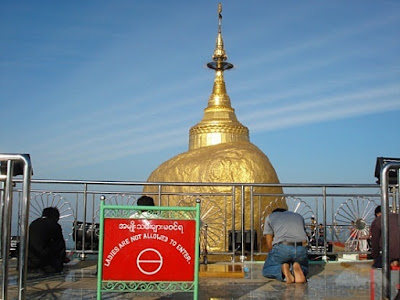For many women in parts of the Islamic world time travel is a daily affair. Beyond the confines of their own home, women remain non-entities with limited legal status. Outside their house, these women find themselves back in the nineteenth century.
I am not referring to social discrimination against women. Unfortunately, much of the discrimination is state sanctioned and enforced by law courts. Take the case of a Saudi Arabian woman sentenced to ten lashes for driving in the Kingdom of Saudi Arabia.
Taliban style edicts prohibit Saudi women from working alongside men, driving or travelling without permission from a male guardian. To be sure, the King pardoned the Saudi woman driver but consider the implications for a society in which women are denied basic fundamental rights such as freedom of movement and association. There are no school runs by mothers, no gainful employment opportunities for women (barring a few vocations such as doctors, teachers, etc.), simply sitting at home idling away time cooking and cleaning.
Normally, I prefer not to make judgements about how foreign societies order themselves. A society may divide occupations through a hereditary caste system, ban the construction of minarets or legalize marijuana based on its own specific cultural context.
However, the Saudi situation is different. Theoretically, all Saudi legal edicts are based upon Islamic law. Consequently, the presumption is that all Muslim women, irrespective of location, should not be permitted to drive. Or work alongside men. Or travel alone without being accompanied by a male guardian.
Saudi Arabia, due to the location of the holy cities of Mecca and Medina in the country, is special for many Muslims. It is no coincidence that the Saudi Monarch refers to himself as the Custodian of the Two Holy Mosques. Events in Saudi Arabia influence conservative Islamic thought across the entire Islamic world. Militant ideologues from Pakistan to Morocco seek moral authority from Saudi decrees and behaviour.
Islamic law is not a static concept. Islamic law is dynamic. It caters to evolving societies. Societies are living creatures, always progressing and evolving. Perhaps there were historical reasons for such strictures on women in the eight century. Perhaps these ideas came into being to protect women.
Whatever the reason, such thinking is obsolete in contemporary societies, Muslim or not.
Genuine social reform in Saudi Arabia, especially pertaining to the rights of women, will provide an enormous boost to Islamic progress. Muslim women will shed a millstone from around their neck. Even amongst the Gulf Arab nations, Saudi Arabia's system is anachronistic. Neighbouring Arab countries like the United Arab Emirates and Oman boast female cabinet ministers and more complete rights for women.
The King's recent announcement permitting women to participate and vote in the country's next municipal elections is encouraging. Any progress is good. At this rate, the entire Islamic world will have joined the twenty-first century by 2215!
__________________
Imran is a business and management consultant. Through his work at Deodar Advisors, Imran improves the profitability of small and medium sized businesses. He can be reached at imran@deodaradvisors.com.















No comments:
Post a Comment